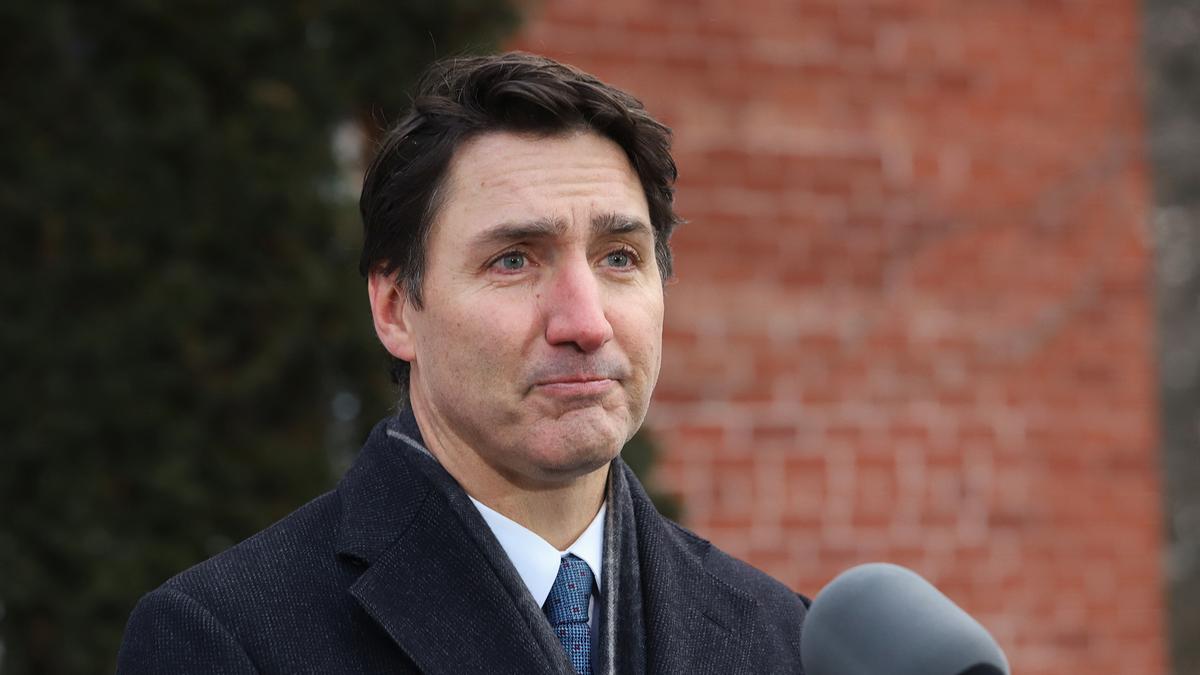Jus In the world of Canadian politics, few figures stand out quite like Justin Trudeau. Born into a political family, Trudeau’s journey from the son of a prime minister to a leader in his own right has been both inspiring and complex. His recent resignation as Prime Minister marks a significant moment not only in his career but also in the landscape of Canadian politics. In this blog, we’ll explore Trudeau’s early life, his political rise, and the challenges he faced during his time in office.
Early Life: Growing Up in Politics
Justin Pierre James Trudeau was born on December 25, 1971, in Ottawa, Ontario. As the eldest son of Pierre Trudeau, one of Canada’s most famous prime ministers, and Margaret Trudeau, Justin was destined for a life in the spotlight. His father served as prime minister from 1968 to 1979 and again from 1980 to 1984. It makes politics a central part of Justin’s upbringing. After his parents divorced when he was six. Justin Trudeau and his two younger brothers were primarily raised by their father, living in the official residence at 24 Sussex Drive.
Justin Trudeau attended Collège Jean-de-Brébeuf, a well-known Jesuit school in Montreal. He later went to McGill University, where he earned a Bachelor of Arts degree in English literature in 1994. After that, he pursued a Bachelor of Education at the University of British Columbia, graduating in 1998. Before entering politics, Trudeau worked as a teacher, sharing his knowledge with students while also engaging with various charitable organizations.
Political Ascent: From Teacher to Prime Minister
Trudeau’s entry into politics wasn’t immediate; it was sparked by personal loss. In 2000, he delivered a moving eulogy at his father’s funeral, which caught national attention and marked his emergence into public life. In 2008, he was elected as the Member of Parliament for Papineau, representing the Liberal Party. His charisma and commitment to progressive values quickly made him a prominent figure within the party. In April 2013, Trudeau became the leader of the Liberal Party. His campaign focused on revitalizing the party and reconnecting with Canadians who had become disillusioned with traditional politics. Under his leadership, the Liberal Party emphasized key issues such as climate change, economic growth, and social justice.
On October 19, 2015, Trudeau led the Liberal Party to a stunning victory in the federal elections, securing a majority government. His administration was marked by ambitious policies aimed at fostering economic growth while addressing social inequalities. Notably, Trudeau appointed Canada’s first gender-balanced Cabinet and championed initiatives for Indigenous reconciliation.
Challenges and Controversies
Despite early successes, Trudeau’s time in office was not without its challenges. His government faced criticism over various issues. It includes how to handle immigration policies amid rising public concern about housing costs and economic inequality. The COVID-19 pandemic further complicated matters; while Canada managed to keep health outcomes relatively favorable, vaccine mandates sparked significant backlash among some groups. Trudeau’s commitment to fighting climate change also faced scrutiny. While he implemented carbon pricing and supported renewable energy projects. The critics argued that these measures did not go far enough given the scale of environmental challenges facing Canada. As public sentiment shifted and approval ratings declined, internal dissent within the Liberal Party grew louder. Key allies like former Finance Minister Chrystia Freeland resigned amid disagreements over economic strategies, signaling deeper divisions within the party.
The Resignation: A New Chapter
On January 6, 2025, after months of mounting pressure from both opposition parties and members within his own party. Justin Trudeau announced his resignation as Prime Minister and leader of the Liberal Party. He stated that he would step down once a new leader is elected through a robust leadership race set to unfold over the coming months. In his resignation speech, Trudeau emphasized that Canada needs an optimistic vision for its future—a vision he felt was not being offered by his political rivals. He expressed pride in his accomplishments but acknowledged that it was time for new leadership to guide Canada forward.
Key Takeaways for CEOs and Leaders
- Understanding Public Sentiment: Trudeau’s experience highlights how crucial it is for leaders to be aware of public sentiment and adapt their policies accordingly.
- Emphasizing Diversity: His commitment to diversity within governance reminds us that inclusive leadership can drive positive change.
- Resilience Amidst Challenges: Leaders must remain resilient when facing criticism; adaptability is vital for long-term success.
- Engagement with Youth: Engaging younger generations is essential for any leader aiming to create lasting impact. Their voices shape future policies.
- Visionary Leadership: A clear vision is crucial for effective leadership; it guides decision-making and inspires collective action toward common goals.
Justin Trudeau’s journey reflects both the potential for transformative leadership and the complexities that come with public service. As Canada moves forward without him at its helm, his legacy will undoubtedly influence future generations of leaders navigating similar paths in an ever-changing political landscape.
To Know More Click ME
